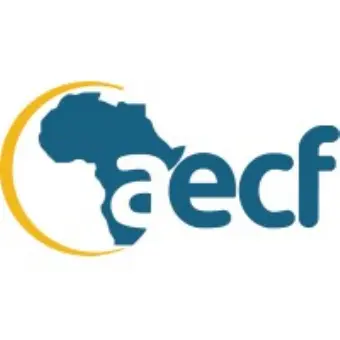Junior Analyst

Africa Enterprise Challenge Fund (AECF)
This job is no longer accepting applications
See open jobs at Africa Enterprise Challenge Fund (AECF).See open jobs similar to "Junior Analyst" Shortlist.About Nigeria Energy Transition Challenge Fund (ETCF)
Nigeria’s Net Zero ambition is based on a transition to full electrification of the economy by 2060 – 250 GW of installed capacity (90% renewable), 80% of the fleet from EV, and clean cooking for 80% of the population. Reaching such targets requires innovative financing and first-loss investments (such as catalytic grants) in technological improvements, productive energy, fuel switching in priority sectors, business model iteration, and scaling for universal access, skills, and job creation in ET priority sectors.
In the context of the Financial Cooperation with the Federal Republic of Nigeria, KfW, on behalf of BMZ, intends to set up a new Challenge Fund mechanism to contribute to implementing Nigeria’s Energy Transition Plan (ETP). The mechanism will form part of the broader development cooperation activities between Nigeria and Germany in the energy space. The “Energy Transition Challenge Fund” (ETCF) will co-finance projects from the public and private sectors to promote the uptake of renewable energy technologies, energy efficiency-enhancing investments, and the expansion of vocational training opportunities in renewable energies and energy efficiency. A demand-driven, competitive application mechanism will be used to systematically select the projects with the highest impact potential on the requested grant funds. The selection of projects will be made through an internationally experienced Project Executing Agency (PEA) based on clear evaluation criteria that will be jointly agreed upon with the partner site before launch.
The ETCF will be launched with an initial funding of EUR 20 Mio (grant funding). Depending on its success and available funding, the mechanism could be further expanded in the coming years.
About the role
The Junior Analyst will assist in evaluating, managing, and monitoring grant applications and investment opportunities for the Energy Transition Challenge Fund (ETCF). The role will involve conducting financial analysis, drafting investment memos, supporting grant processing, and contributing to portfolio management activities. The incumbent will work closely with the senior portfolio officers and other team members to ensure the effective allocation of resources and the successful implementation of funded projects.
Key Responsibilities
- Assist in the assessment of grant applications, ensuring they meet established criteria and align with ETCF’s objectives.
- Coordinate with internal teams to support the grant approval process.
- Conduct financial analysis and due diligence on potential investment opportunities.
- Assist in the preparation of investment reports.
- Monitor the performance of existing investments, providing regular updates to Senior Portfolio Officers.
- Support the management of investees, ensuring investments are on track and objectives are being met.
- Contribute to the continuous improvement of portfolio management practices.
- Contribute to preparing detailed reports on grant and investment activities, including financial performance and impact assessments.
- Maintain accurate and up-to-date records of all grant and investment transactions.
- Communicate effectively with investees, providing guidance and support as needed.
- Stay informed about industry trends and best practices in grants and investment management.
Qualifications:
- Possess a bachelor’s degree in finance, economics, business administration, or a related field.
- A minimum of three (3) years of experience in grants management, investment analysis, or a related field. Experience working in a non-profit or development finance environment will be an added advantage.
- Strong analytical skills, with the ability to conduct financial analysis and interpret data.
- Detail-oriented with strong organizational abilities.
- The ability to work independently and as part of a team.
- Proficiency in Microsoft Office, particularly Excel, and familiarity with financial modeling tools.
- Knowledgeable in the grant-making processes and investment evaluation methods.
- Possess analytical thinking, problem-solving, effective time management skills, and the ability to prioritize tasks.
- Possess strong interpersonal skills and the ability to build relationships with stakeholders.
- A commitment to the organization’s mission and values.
- An excellent command of English (both written and verbal).
This job is no longer accepting applications
See open jobs at Africa Enterprise Challenge Fund (AECF).See open jobs similar to "Junior Analyst" Shortlist.




